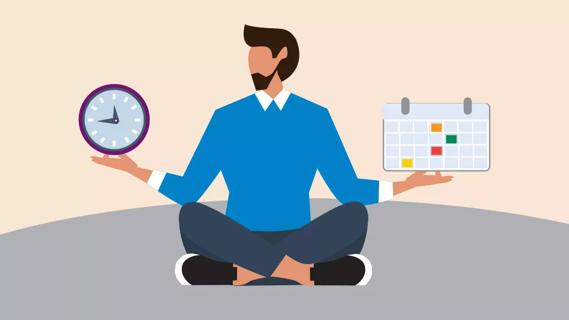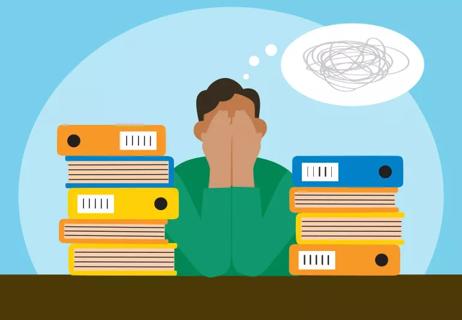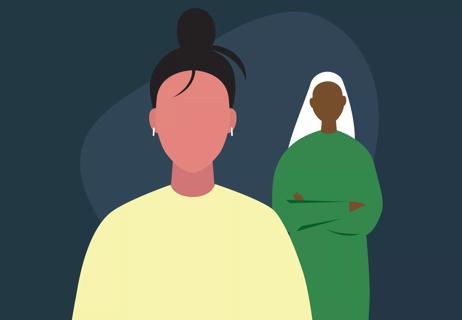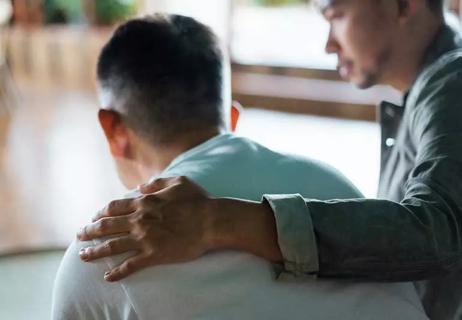8 ways to cope with the stress of a long-haul pandemic

When the pandemic started, none of us imagined that we’d still be social distancing and wearing masks well over a year later. But here we are. And as the months drag on (and on… and on…), many of us are feeling even more exhausted, irritated and drained.
Advertisement
Cleveland Clinic is a non-profit academic medical center. Advertising on our site helps support our mission. We do not endorse non-Cleveland Clinic products or services. Policy
“People are frustrated,” says Licensed Mental Health counselor Anne Posey, LMHC. “We’re really feeling the impacts of the pandemic, and we’re tired of it.”
It’s been a long haul, and it’s not over yet. But it won’t last forever, Posey notes — and there are tools to help you get through to the other side.
“Sometimes, we expect to just magically feel better, but it doesn’t usually work that way,” she adds. “If you map out a plan and do things with intention, you’ll get through this.”
In the early days of the pandemic, many people felt fear and uncertainty, Posey says. But several months in, “COVID fatigue” set in: We’re exhausted by continued restrictions, drained by endless Zoom meetings and sick of having to worry about if we could get toilet paper and hand sanitizer at the store.
As we continue to navigate “the new normal,” there are some things we can do to protect and preserve our mental health. Posey offers these eight strategies:
The way you frame things can make a big difference in your mood and mental health. If you focus on the negative, that’s how you’ll feel — so try to look at challenges in a new way. “Instead of telling yourself ‘I’m so tired of not seeing my friends, I can’t keep doing this,’ reframe it to say, ‘I’m doing something for the greater good, and this won’t last forever,” Posey says.
Advertisement
Worrying for worrying’s sake doesn’t do you any good — unless it spurs you to make changes, Posey says. “If you find you’re anxious about something in particular, try to problem-solve.”
Instead of dwelling on whether you might lose your job because of the pandemic, take action by updating your resume, looking at job listings or talking to your boss about your concerns. If the worst happens and you find yourself unemployed, you’ll be in a better position to respond. “You can handle challenges if you have a plan,” Posey adds.
You’ve probably gone through hard times in the past. “Look back at the times you struggled. How did you get through it? Who was supportive? What good advice did you get?” Posey says. “Remember that you’re resilient. Draw on those skills to get through the day.”
You’ve heard it before: Eat healthy, exercise, get plenty of sleep and don’t drink too much. But it really does make a difference in how you feel. If you’re still using the pandemic as an excuse to indulge (Why not eat this whole carton of ice cream? It’s a pandemic!), it might be time to try a new strategy.
Just because you can wear pajamas all day and take lunchtime naps doesn’t mean you should. “Routines are good for you,” Posey says. “You might need to map out a healthy eating plan, set a regular bedtime and schedule a 30-minute walk each day.”
After months of living and working remotely, virtual happy hours have lost some of their sparkle. But it’s as important as ever to stay connected to friends and family — even if you have to get creative to do it.
Send a care package to a friend you’re missing. Meet a pal outside for a socially distant walk or just pick up the phone. It might feel like it takes too much effort. But once you connect, you’ll be glad you did.
It’s easy for your stress to spiral if you start thinking, “What if?” To avoid getting lost in a rabbit hole of worry, try to stay in the moment. “We don’t know what the future holds. Try to focus on what you’ll do this week instead of worrying about what will be happening a year from now,” says Posey.
You don’t have to be an eternal optimist who sees the bright side of everything. Even pessimists and realists can benefit from looking for the little gifts inside this pandemic. Maybe you don’t have to set your alarm quite so early or deal with a commute. Maybe you’re getting to spend more time with your teens now that you’re all staying home.
It might be as simple as a new appreciation for the loved ones you’re eager to see again when this is all over. Figure out what your gifts are and pay attention to them.
Advertisement
Another silver lining of the pandemic? “Mental health care is more accessible than ever,” Posey says. Thanks to new telehealth options, you can talk to a mental health specialist without leaving your home.
If you’re feeling anxious or depressed every day, and it’s been going on for at least a couple of weeks, Posey recommends getting some help. “If you had a headache that lasted a week or two, you’d talk to a doctor. Why wouldn’t you do the same if you’re feeling down?” she asks.
While the arrival of COVID-19 has brought on more stress and anxiety, it’s also caused more Americans to pay attention to their mental health.
According to the results of the 2021 Healthy Now survey that was commissioned by Parade Media and Cleveland Clinic, 82% of respondents said that mental health is just as important as physical health. This was a significant increase from 2018 when only 68% strongly agreed with that statement.
Another thing that the survey revealed — while many Americans have grown emotionally throughout the pandemic, its lingering effects continue to affect them negatively.
About 60% of Americans are more likely to feel stressed, anxious and/or depressed this fall as compared to 50% during the fall of 2020. Fifty-six percent of respondents said that they’ve felt their anxiety, depression and/or stress levels rise as the number of COVID-19 cases increase.
Advertisement
Other survey results revealed:
After months of social distancing and doomscrolling, even the peppiest among us feels the wear and tear. But there is help and if you need it, don’t be afraid to reach out.
Posey suggests trying to keep a positive mindset when you can. Not every day will be filled with sunshine, rainbows, puppies and kittens. That’s totally fine. Know that it’s OK to feel what you feel. Just try not to stay in a place of despair.
“It’s a difficult time,” Posey says. “But we can set the intention to do things that will help us get through this.”
Advertisement
Learn more about our editorial process.
Advertisement

Connecting with others, going for a walk or focusing on sleep quality can help more than you might realize

You may not always notice it, but your mental health has just as big of an impact on your well-being as your physical health

Rethinking your Mondays might make the ‘Sunday scaries’ a thing of the past

Get to know the resources they have on and off campus, including their friends

College is a time of big transitions, intense stress and major lifestyle changes

Wishing you made a different decision can help you learn from your mistakes

This term from TikTok encourages positive affirmations around ‘luck’

Start a conversation, gently ask questions and offer help without judgment

Type 2 diabetes isn’t inevitable with these dietary changes

Applying a hot or cold compress can help with pain